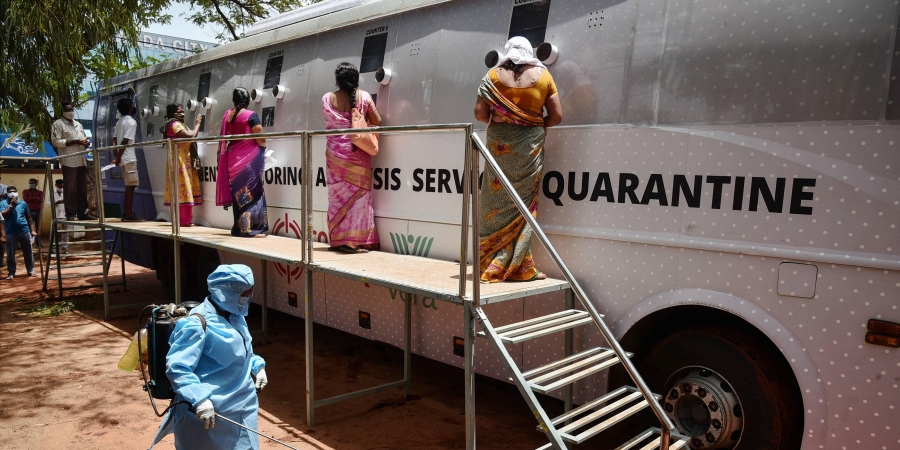
Widowed by COVID, homemakers scramble for gigs to feed family

The second wave of the COVID-19 pandemic has left many in a state of shock. The people have lost their loved ones and many have been left without a job. But there is one group that has faced the brunt of emotional, mental and financial trauma — COVID widows.
On the one hand, have lost their husbands and on the other, they have no money left to take care of their families. The sudden financial loss has forced them to look desperately for jobs with little or no prior experience.
Ruchika Talwar, a Delhi-based homemaker, said, “My husband succumbed to the pandemic on May 13. He worked in a private company. He was the sole earner in the family. Now our family of three – our one-year-old son, my mother-in-law and I — have been left without any source of earning.”
She says whatever the family saved is being spent. “We have already sold gold ornaments. I am open to taking any kind of job now. I did Bachelor of Education. I never did a job in my life. My degree is relevant for school teaching. I can take up a teacher’s job in schools but schools are also closed,” she said.
Also read: Maid in hell: How COVID wreaked havoc on lives of poor, marginalised
She has been giving tuitions to two children, but that is not enough. “I am open to a housemaid’s job. I can cook good food. I need money to feed my child and family. I can do any kind of job now,” says a desperate Ruchika.
Harsha Ahuja, another homemaker, lost her husband to COVID-19. She is a mother of a two-month-old child. She posted on social media, “I have done MBA (HR). I have an internship experience of two months. I request you to get me a job so that I can feed my family.”
Similarly, Dayawanti, a craft teacher with 12 years of experience, lost her husband. With three children, she also found it difficult to survive without a job. She said, “I left my job after my children were born. I’ve not been working for eight years. But now, to survive and feed my kids, I need a job. I am asking recruiters to give me just a ₹20,000 job so that I can feed my kids properly.”
According to COVID Women Help (CWH), an NGO which gives training to COVID widows to get a job, thousands of women lost their husbands who were the only earning member and currently looking for career opportunities. Nearly one thousand widows have already reached out to CWH to get help in getting the jobs, according to CWH.
Also read: How COVID crisis unraveled the lives of Karnataka weavers
Yudhvir Singh, the founder of CWH, said, “This is an extremely important issue. Many women are still in trauma. India is big demography, and we are getting a diversity of profiles with respect to education, location, language, type of support needed.”
Deepa Narayan, a woman rights activist, said, “The pandemic has held a mirror to everyone. Most women in our country are seen more as a housewife. They are taught every single household chore, but never given a small skill-set to earn a livelihood.”
She says till 2019, there were nearly 70 million widows in the country and their condition was miserable. The pandemic led to more women losing their husbands. The absence of skill-sets and the economic recession have led to an unprecedented tragedy for them,” she added.
In 2019, before the Covid-19 pandemic, female labour force participation in India was 23.5%, according to International Labour Organisation (ILO) estimates, one of the lowest. According to ILO, India’s societal norms are such that women are expected to take the responsibility of family care and childcare.
This stereotype is a critical barrier to women’s labour force participation and due to this, women are in constant conflict over-allotment of time for work and life is a war of attrition for them, ILO added.
It was estimated that around 70 lakh Indian women had dropped out of work due to the pandemic which further reduced the female labour force participation. For India, several estimates show that, compared to men, women were 9.5% less likely to be employed in August 2020 compared to August 2019.
In March 2021, comparing to March 2020, the urban female workforce participation fell by 19.6% but the rural female workforce participation had increased by 9%. Experts believe that this is because women are helpless to take up small jobs.
“More women are losing jobs. Their participation in urban jobs has decreased. This means that the mid-level posts for women are decreasing,” said Anil Kumar, a retired economics professor at JNU.
“Many who have lost their husbands are in a miserable condition. They need money. The informal sector has risen more during the pandemic. The participation of women in the informal sector has also risen. This is a clear message that women are helpless to take up small jobs. They are doing everything to meet their family expenditure,” he added.
The National Commission of Women says it is looking into the issue, and that COVID widows can call their helpline number any time if they have a problem. They said that there are many programmes through which widows can acquire training, skills and get jobs.

